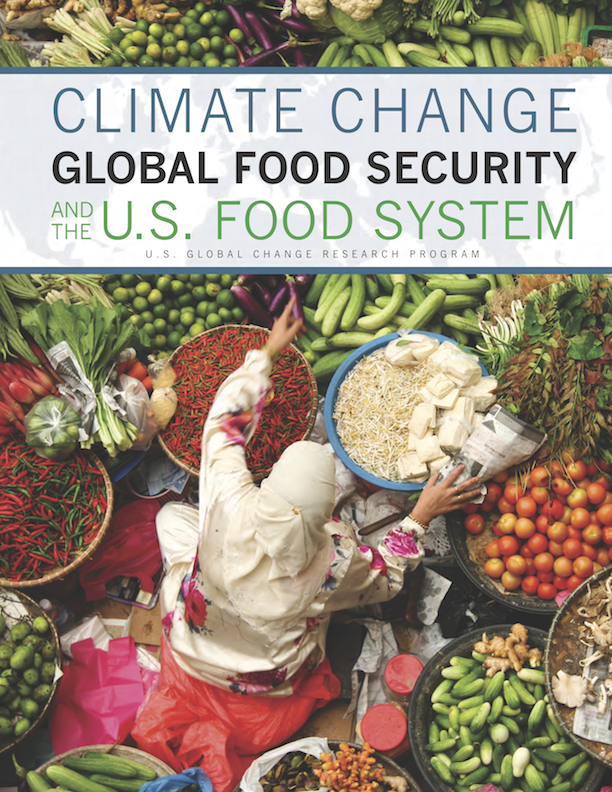- Home
- About
- Programs
- Carbon Science Planning
- Resources
- News & Opportunities
- Contact Us
New USDA USGCRP Report: Climate Change, Global Food Security and the U.S. Food System
December 2, 2015
*Excerpts cross-posted from usda.gov and globalchange.gov*
Released by USDA Secretary Tom Vilsack at the 21st Session of the Conference of the Parties to the UN Framework Convention on Climate Change (COP 21)in Paris, France on December 2, 2015, Climate Change, Global Food Security, and the U.S. Food System is a peer-reviewed scientific assessment that identifies climate change effects on global food security. The assessment is a contribution to the U.S. Global Change Research Program's National Climate Assessment, is called for under the President’s Climate Action Plan, and was led by USDA.
| Complete Report | Executive Summary | Report in Brief | Press Release | FAQ's | Report Figures |

The report represents a consensus of 31 authors and includes contributors from 19 Federal, academic, nongovernmental, and intergovernmental organizations in four countries.
Major findings of the report are:
- Climate change is very likely to affect global, regional, and local food security by disrupting food availability, decreasing access to food, and making utilization more difficult.
- The potential of climate change to affect global food security is important for food producers and consumers in the United States.
- Climate change risks extend beyond agricultural production to other elements of global food systems that are critical for food security, including the processing, storage, transportation, and consumption of food.
- Climate risks to food security increase as the magnitude and rate of climate change increase. Higher emissions and concentrations of greenhouse gases are much more likely to have damaging effects than lower emissions and concentrations.
- Effective adaptation can reduce food system vulnerability to climate change and reduce detrimental climate change effects on food security, but socioeconomic conditions can impede the adoption of technically feasible adaptation options.
- The complexity of the food system within the context of climate change allows for the identification of multiple food security intervention points, which are relevant to decision makers at every level.
- Accurately projecting climate change risks to food security requires consideration of other large-scale changes.
Earlier documents related to the report drafting process:
- Request for public comment on draft report (Federal Register Notice posted September 8, 2015)
- Opportunity to nominate expert reviewers (Federal Register Notice posted July 8, 2014)
- Expert Stakeholder Workshop Report

